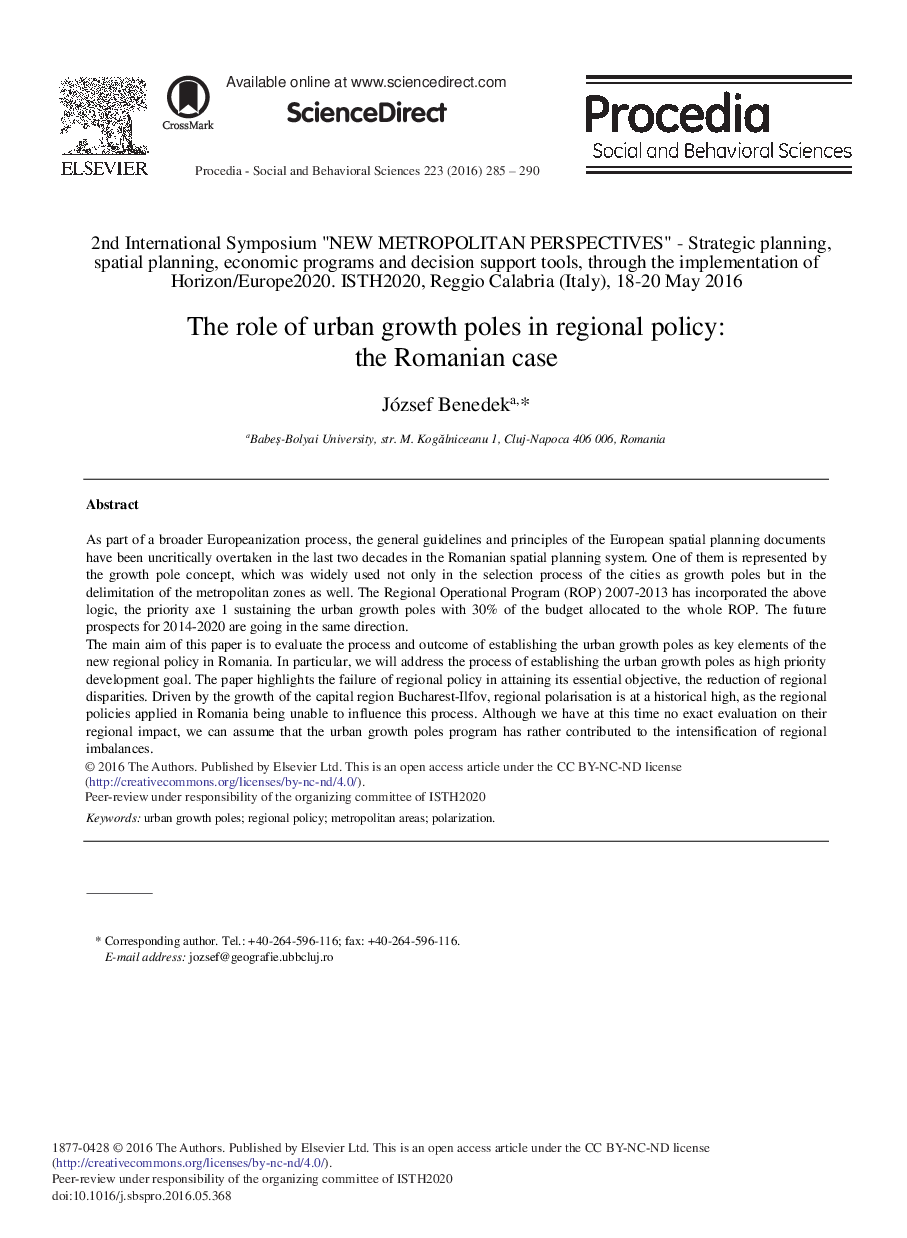| کد مقاله | کد نشریه | سال انتشار | مقاله انگلیسی | نسخه تمام متن |
|---|---|---|---|---|
| 1107569 | 1488336 | 2016 | 6 صفحه PDF | دانلود رایگان |
As part of a broader Europeanization process, the general guidelines and principles of the European spatial planning documents have been uncritically overtaken in the last two decades in the Romanian spatial planning system. One of them is represented by the growth pole concept, which was widely used not only in the selection process of the cities as growth poles but in the delimitation of the metropolitan zones as well. The Regional Operational Program (ROP) 2007-2013 has incorporated the above logic, the priority axe 1 sustaining the urban growth poles with 30% of the budget allocated to the whole ROP. The future prospects for 2014-2020 are going in the same direction.The main aim of this paper is to evaluate the process and outcome of establishing the urban growth poles as key elements of the new regional policy in Romania. In particular, we will address the process of establishing the urban growth poles as high priority development goal. The paper highlights the failure of regional policy in attaining its essential objective, the reduction of regional disparities. Driven by the growth of the capital region Bucharest-Ilfov, regional polarisation is at a historical high, as the regional policies applied in Romania being unable to influence this process. Although we have at this time no exact evaluation on their regional impact, we can assume that the urban growth poles program has rather contributed to the intensification of regional imbalances.
Journal: Procedia - Social and Behavioral Sciences - Volume 223, 10 June 2016, Pages 285–290
